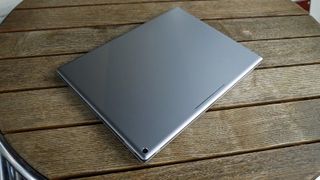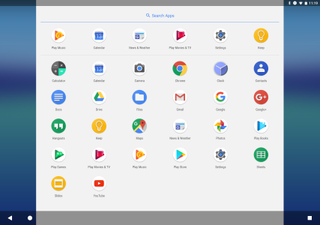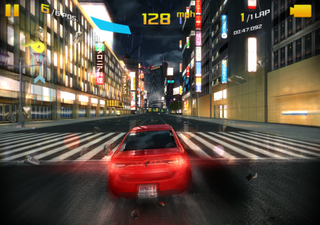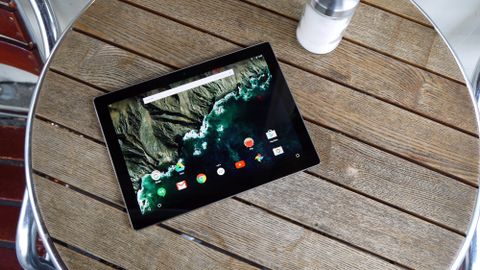Why you can trust TechRadar
Google has ensured that it's put specs in all the right places on the Pixel C, with a focus on the screen, power and battery.
That does mean, though, that there are a few areas where the specs don't quite match the flagship price tag – chiefly in the camera department, where an 8MP rear camera is joined by a 2MP front snapper.
It's certainly not the end of the world, and while the lack of a microSD slot will irk some, at least there's no poxy 16GB model – I'm looking at you Apple – with 32GB the entry-level storage size. I would have liked to have seen a 128GB model above the 64GB offering, although for most users 64GB will be enough.

Stereo speakers help to improve the audio output of the Pixel C, while the four microphones enable the tablet to hear you more clearly when you're barking orders at Google Now, and improve your voice clarity during video calls.
As I've mentioned, the Pixel C comes with Android 6.0 Marshmallow, the latest iteration of Google's mobile software platform.
This means you have access to the Play Store, well stocked as it is with apps, games, movies and music. The thing is, though, Android lacks the quantity and quality of tablet-optimised applications that you get in the rival App Store for Apple's iOS.
Load up certain applications – Spotify is a good example – and you'll notice it's just the smartphone application. It hasn't been optimised for the Pixel C's expansive 10.2-inch display, nor any other tablet screen for that matter.

While such apps are still perfectly usable, this lack of optimisation does hamper the user experience, and can make things look a little bit ugly on screen.
A handy touch, however, is found in the navigation bar, where Google has split the trio of buttons so they no longer reside in the middle of the screen.
Instead, the multitasking button sits against the right side of the screen, while back and home are on the left. This makes them a lot easier to hit when holding the tablet with both hands.
There's plenty of Wi-Fi potential inside the Pixel C with the slate supporting 802.11 a/b/g/n/ac 2x2 MIMO – if you've got a super-duper router this tablet can take full advantage of it.
Those looking for 4G connectivity will be disappointed, though, as Google offers the Pixel C as Wi-Fi only. Apple, Samsung and even the Nexus 9 offer up pricier Wi-Fi + LTE models for those who never want to be without an internet connection, but no dice here.
It's not a big problem, though, as for many their core usage will occur at home or somewhere with a Wi-Fi connection.
Performance
The Pixel C sports Nvidia's Tegra X1 processor, a 64-bit, quad-core chip which delivers a healthy blast of power into Google's aluminium-clad slate.
That's joined by 3GB of RAM, which means the Pixel C has more power under the hood than the iPad Air 2 and Nexus 9, although the octa-core Samsung Galaxy Tab S2 and Sony Xperia Z4 Tablet technically have greater capacity for higher loads.

Running the Pixel C through Geekbench 3 shows just how powerful it is. With an average multi-core score of 4449, it performs better than the Nexus 9, Sony and Samsung tablets, while pretty much matching the Air 2's result.
On screen I found the Android interface to be fast and fluid. Apps generally loaded in good time, and the Pixel C was able to run the graphically-intensive Real Racing 3 and Asphalt 8 Airborne without any hint of slowdown.
It's not the slickest experience I've ever had on a tablet though, and while everything runs well, the Pixel C just lacks that top level of polish for sublime performance and instant responses every time.
Current page: Specs and performance
Prev Page Dazzling display, clever keyboard, tasty Marshmallow Next Page Music, Movies and Gaming
John joined TechRadar over a decade ago as Staff Writer for Phones, and over the years has built up a vast knowledge of the tech industry. He's interviewed CEOs from some of the world's biggest tech firms, visited their HQs and has appeared on live TV and radio, including Sky News, BBC News, BBC World News, Al Jazeera, LBC and BBC Radio 4. Originally specializing in phones, tablets and wearables, John is now TechRadar's resident automotive expert, reviewing the latest and greatest EVs and PHEVs on the market. John also looks after the day-to-day running of the site.

Amazon Prime Video's disappearing act could point to a future without the service

Tesla Cybertruck suffers new recall for a very scary problem

'The party is over for developers looking for AI freebies' — Google terminates Gemini API free access within months amidst rumors that it could charge for AI search queries
